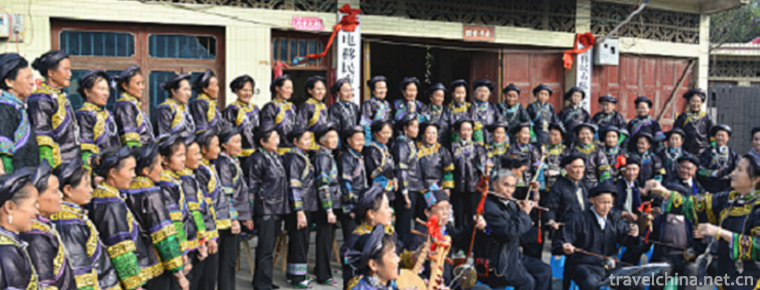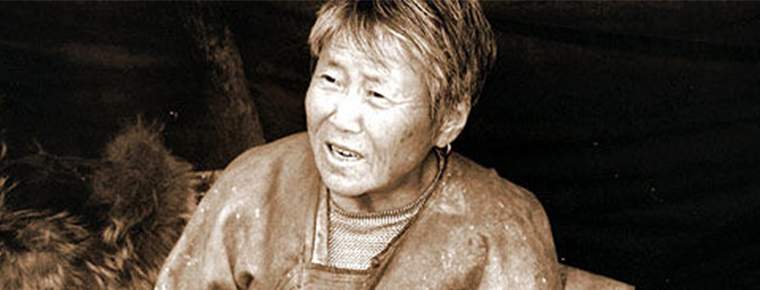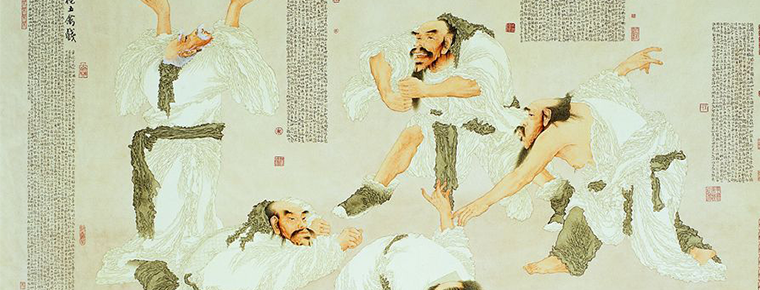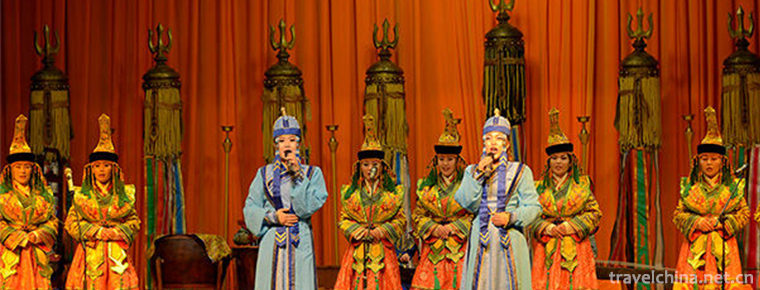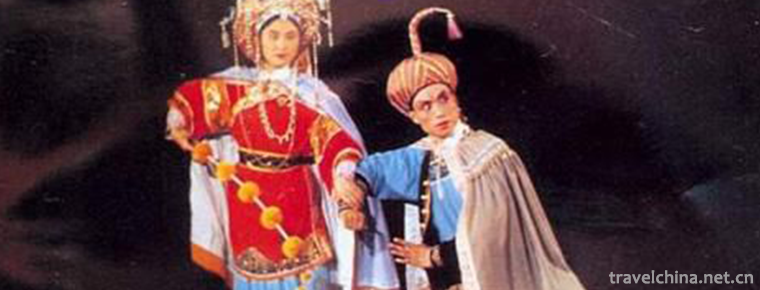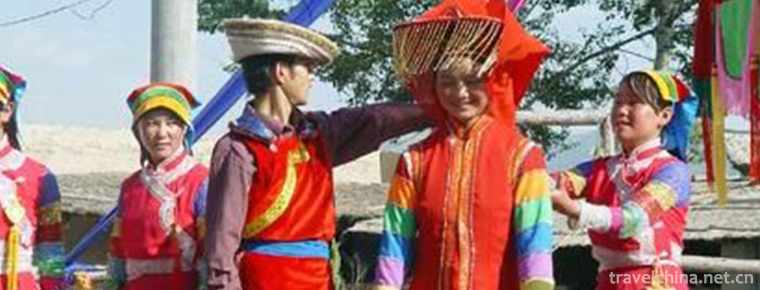Oral skills
Oral skills
Oral skill is an excellent folk performing skill and a kind of acrobatics. Originated in ancient times, people used to hunt, imitate the sound of animals, to deceive prey for food. According to historical records, in the story of Meng Xianjun's night breaking through Hangguguan in the Warring States Period, "chicken singing and dog stealing" was the first to apply oral skills to military affairs. By the Song Dynasty, oral techniques had become quite mature performing arts, commonly known as "Neighborhood Opera". From the Song Dynasty to the Republic of China, it was popular in Hangzhou. Performers imitated various sounds of nature, such as birds and beasts, wind, rain, thunder and lightning, with their mouths, teeth, lips, tongues, throats and noses. It enables the listener to be present. This skill belonged to one of the "hundred operas" in the Qing Dynasty.
On May 23, 2011, oral technology was approved by the State Council and listed in the third batch of national intangible cultural heritage list.
Tracing to the source
Oral technique originated very early. It can be traced back to ancient times. In order to hunt, people often had to deceive and lure them by imitating the calls of birds and animals, or to drive away the hunting animals with the roar of intimidation in order to catch them. As for the "sound-seeking way-finding" at that time, it was to use different roars to find and distinguish companions in the mountain forest. It was also the earliest language of human beings, but the "sound-seeking way-finding" at that time was only the predecessor of oral skills, not the real oral skills.
According to historical records, in the Warring States Period of 298 B.C., there was an oral story of Meng Xianjun's night breaking through Hangguguan. The story of Meng Xiangjun's door-to-door learning chicken song and his escape from Hangguguan in the Warring States Period is the earliest historical record of oral skills. It can be said that oral skills originated from the Warring States Period and have a history of more than 2300 years, but oral skills at that time were not used for performance. King Zhaoxiang of Qin was going to kill him because of the envy of Meng Tangjun Tianwen of Qi. He let the doorkeepers learn to bark, steal fox-faced fur, bribe the spoiled concubines, and obtain a "pass"; and let the doorkeepers learn to bark, so that the guards open the city gate and escape.
The Development of Oral Techniques and Its Representatives
Oral skill as a performing art is no later than Song Dynasty. In Song Dynasty's Miscellaneous Records, it is said that in the playground of Beijing, there are "learning local dialect" and "singing of birds", which may be both oral skills. The stage effects of "barking dogs" and "barking chickens" in Song and Yuan drama were mostly performed by people performing oral skills in the background.
Tang and Song Dynasties
During the Tang Dynasty, there was a social organization specializing in the training of oral skills called the "Academic Video Society". In Tokyo Menghualu and Old Stories of Wulin, there are descriptions of "Learning Image Audio Society".
Song Dynasty is the flourishing period of oral art, and the book "Tokyo Dream China Record" reflects the social life of the capital of Tokyo in the Northern Song Dynasty most completely and comprehensively. It is recorded in the book that the performances of Wawan Zhongkou in the Song Dynasty were quite exquisite. In 1131, the Song Dynasty witnessed the emergence of oral next-door drama, which was concealed by the eight-foot barrier. A table, a chair, a fan and a foot were only used. In the barrier, oral performers sat mainly by speaking, learning, amusing, singing and imitating animal sounds. Their performance forms were as follows: only listening to their voices, but not seeing their people. During the reign of Huizong in Song Dynasty, there was a folk artist named Liu Baiqin in Hangzhou. He was able to learn many bird calls and animal calls, so he was called Liu Baiqin. During the reign of Xiaozong in the Southern Song Dynasty (1163-1189), there were already oral performance groups in Hangzhou, and oral skills began to spread in the society in an artistic form.
Ming and Qing Dynasties
During the Ming Dynasty, Yu Chi's continued ambition, Guo Mao er, was his main performance of the next wall drama "pig killing" and "pig competing for food".
During the late Ming and early Qing Dynasties, the famous oral artist "Thrushcross Yang" was good at learning thrush bird songs and could answer the birds among trees. His performance of "Two Birds Competing for Food" characterizes the two thrushes into story performances. His skill is superb, and surprises the capital city, which has been passed down to this day.
In the Qing Dynasty, oral technique developed from simply simulating a certain sound to being able to form a story with various sounds at the same time. It was listed as one of the "hundred operas", "oral opera", commonly known as "next-door opera". It performs "army hunting" and "group pigs * competing for food".
the Republic of China era
Hundred Birds Zhang, formerly known as Zhang Kunshan, 1903 - unknown, from Beijing. One of the "Eight Big Monsters" of Beijing Flyover, he is good at learning "Birds Strife", so he is called "Birds Zhang". There are poems about his oral skills recorded in Qingbu Chant.
Yin Shilin, the artist's name is "Open-mouth Laughter". He inherited the tradition and boldly reformed the performance form of oral skill "Next-door Opera", so that the artist moved from behind the eight-foot barrier to the stage. He made oral skill cooperate with body language and facial expression to become an oral art with rich voice and emotion, giving oral skill a new life. His performances of "Pushing a Car", "Spinning Cotton" and "Bird's Song" became outstanding, leaving precious cultural heritage to future generations.
Modern times
Sun Tai, born Zhou Zhiliang, a famous master of oral performance, was born in 1907. In 1924, Yin Shilin took part in the Shanghai People's Acrobatic Troupe in 1951. He won the "Golden Prize of Warsaw International Acrobatic Competition" in 1956 and died in 2003.
Zhou Zhicheng, a famous master and educator of oral performance, was born in 1904. Sange Sun Tai learned oral skills with his brother Sun Tai in 1930, and later became a teacher with Yin Shilin. In 1939, he went to Southeast Asia and Australia with his brother Sun Tai, and joined the Shanghai People's Acrobatic Troupe in 1951. He died in 1979.
Niu Yuliang is a famous artist of oral performance. In 1956, Zhou Zhi, a master of oral skills, became a master of oral skills, and was deeply trained by his uncle Sun Tai. He inherited the tradition and developed continuously to form his own unique performing style. There are unique opinions and innovations on the methods of oral technique luck vocalization. The "cyclic luck method" and "cyclic vocalization method" of oral technique are breakthroughs in the history of oral technique development. He presided over the declaration of oral skills as "national intangible cultural heritage" and became a representative successor of this project.
Niu Yuming, a well-known oral performance artist, studied oral skills with his brother Niu Yuliang in 1960 and visited Master Sun Tai in 1984. His performance is humorous and connotative, which is welcomed by the audience.
Fang Haoran, Niu Yuliang's disciple. Over the years, counterpart skills have been learning and practicing, exploring and researching the traditions and creating new ones rigorously. Combining modern science and technology, systematically summarize the theory of oral skills teaching, edit oral skills course. It is the first time to restore the performance of "Oral Techniques" in Chinese textbooks of middle schools. Domestic performances for national leaders and visiting ambassadors of more than 30 countries, and international performances in Southeast Asia, Europe and other places have received high praise and praise from all walks of life.
Oral story
(1) Gongye Chang understands bird language
Among Confucius'seventy-two sages, there is a man who knows the bird's language. He is a firewood collector with a double surname of Gongye and a long name. Gongye Chang's family only had two mothers and two sons, and the family was very poor. But he was smart and smart from childhood, and often followed his mother to the mountains to cut firewood. One day, his mother was too sick to go up to the mountains to cut firewood, and there was no rice to go down to the pot at home. The young Gongye elder was very sad, so he carried his mother on his back and quietly picked up the machete and rope and ran up the hill alone.
Gongye Chang came to the mountain alone. He was so lonely and afraid that he couldn't help crying. As the cry grew louder and louder, the birds on the hill were startled. The birds flew over from a distance and fell beside Gongye Governor and stared at him curiously. Gongye looked at the birds and wondered where they came from. Then a black-feathered bird said, "What are you crying? What are you crying?" Xiaogongye was even more puzzled and thought, "How can a bird talk?" So he responded, "What kind of bird are you? How can you talk?" The bird cried, "I call eight brothers, and I'm born to talk." Gongye thought: Since birds can learn to speak, so can people learn to speak. Then the elder brother asked him, "What's your name and why are you crying here?" The elder brother told him his name, his mother's illness and his fear of going to the mountain alone to collect firewood. After hearing this, the eight brothers and other birds were very poor Gongye. Then they said in unison, "Let's be your companion and help you collect firewood." Xiaogongye was very happy when he heard that. Without fear in his heart, he gathered firewood with the birds.
While he was collecting firewood, the birds were chattering firewood and piling it up beside him. In a short time, they piled it up into a hill. Gongye's elder brother tied up the firewood with rope to go home. At this time, the elder brother did not know where to bring a string of peanuts to Xiaogongye's elder brother and let him take them home to treat his mother's illness. Xiaogongye was very grateful. He carried firewood and peanuts and reluctantly left the birds. When he returned home, it was almost dark, and his mother asked him where he had gone, and he told her what had happened on his way up the hill. The kind mother could not help but feel a pain and hold him tightly in her arms. Tears continued to fall on Xiaogongye's body. From then on, Xiao Gongye went to the mountains to collect firewood every day, often playing with the birds, often learning bird calls, for a long time, Xiao Gongye had unconsciously learned the bird's voice, understood the bird's voice.
A few years later, when Xiaogongye grew up, he still went up to the mountains to cut firewood every day, playing with the birds and learning bird language. One day, he suddenly heard the crow say, "Gongye Chang, Gongye Chang, there is a Swertia on the top of Nanshan Mountain. You eat meat and I eat intestines." Gongye Chang listened and ran to Nanshan Mountain. As expected, he saw a dead Swertia roxburghii. He dragged the dead deer home and peeled it, cooked it and ate it, but he forgot what the crow said and buried the deer intestines. The crow was very angry. He thought Gongye was not a friend enough and wanted to retaliate against him. Shortly afterwards, Gongye Chang was gathering firewood on the mountain. Suddenly the crow said, "Gongye Chang and Gongye Chang, there is a dead sheep in Beishan. You eat meat and I eat intestines." When Gongye heard this, he ran to Beishan again. Far away, he found a crowd of people looking around at something. He thought it was a dead sheep, but he was afraid of being dragged away, so he shouted:
"Don't move, I killed you, I killed you!" When he came closer, it was not a dead sheep lying there, but a dead man (who had also raised a knife at the time). A crowd of onlookers
He was tied up and sent to the county government. When he arrived at the county hall, the county magistrate asked him why he wanted to kill people. The governor of Gongye argued, "This man was not killed by me, and I don't know who killed him." So he told the magistrate the story from beginning to end. The magistrate listened and thought to himself, "How can a man speak birds?" He was afraid that Gongye Chief would lie, so he asked the servant to carry Gongye Chief on his back and caught a little swallow and put it in a cage and mentioned it in the lobby. Then came an old swallow, screaming outside. The county magistrate asked Gongye governor, "What does the swallow say outside?" Gongye governor said, "Tell Your Excellency that the swallow outside is saying,'I didn't offend you, or hinder you, why did I keep my child in a cage?'" At this time, the county magistrate really believed that Gongye governor knew bird language and decided that he did not kill people, so he let him go.
(2) Banquet strike by the Governor of Gongye
One day, Gongye was invited to a friend's wedding banquet and two magpies came to chirp during the festive climax. The host said happily, "Today a couple of magpies come to congratulate us. It's a real joy." He treated the Magpies as guests. Then came another pair of crows, nodding their heads, flapping their wings and croaking. The owner came out angrily and said, "It's really depressing. It's a bad omen." So he stoned the crows away. Gongye, however, rose from the table and said, "You are so unreasonable, do you know? The first couple of magpies said,'You get married and fight! Fighting is to break up your marriage, but you treat them as guests, while the crows are to bless your husband and wife with love and old age, but you use stones to beat them away, you really don't know good or bad. In anger, he flew away.
Dogs bark all over the city
In 1958, the master of oral techniques Zhou Zhicheng performed oral skills with the Chinese Acrobatic Art Troupe in a small town in Paris, France. When he imitated the barking of dogs, all the dogs in the town started to bark. The interesting news was passed on as a joke.
The fight between two dogs stirred up the whole scene.
Before the Spring Festival of 1982, Niu Yuliang and his younger brother Niu Yuming were invited to perform oral skills in celebration of Prince Sihanouk's birthday in Cambodia. Niu Yuliang said, "This year is the Year of Dogs on the Chinese Lunar calendar. You can imitate the different barks of several kinds of dogs." When they imitated a fight between two dogs, the white dog brought by Princess Monique, Princess Sihanouk's wife, and the white dog brought by his aunt listened to the voice of the oral performance "Two Dogs Fighting", they also followed each other closely and fought fiercely. At this time, the whole audience was stirred up and warmly applauded. Prince Sihanouk also stood up and applauded, and the audience stood up and applauded warmly. After the performance, Prince Sihanouk stepped forward and grabbed their brothers'hands and said kindly, "That's wonderful! Thank you! " At the same time, Li Xiannian, the chairman accompanying the two brothers, took their hands and said, "Congratulations on your success in the performance!"


-
The Grand View Garden Area of Shanghai
Shanghai Grand View Garden is located at 701 Qingshang Highway, Qingpu District, Shanghai. It is situated on the west side of Dianshan Lake, 65 kilometers away from downtown Shanghai..
Views: 150 Time 2018-12-19 -
Brodo
Buyi Opera, a local traditional drama in Ceheng County, Guizhou Province, is one of the national intangible cultural heritage..
Views: 127 Time 2019-04-04 -
Mosukun of Oroqen Nationality
Mosukun of Oroqen nationality is Oroqen language, meaning "telling and singing stories". Most of the performances are performed by a single person without accompaniment of musical instrument.
Views: 142 Time 2019-04-28 -
Huatuo Wuqin Opera
Huatuo Wuqin Opera is a set of guiding techniques compiled by Huatuo, a famous physician in the late Eastern Han Dynasty, according to the principles of traditional Chinese medicine,.
Views: 94 Time 2019-05-04 -
Manchu Ergui wrestling
Ergui wrestling is a traditional Manchu folk dance spread in the urban and rural areas of Longhua County, Hebei Province. It was formed in the late Qing Dynasty (around 1820 A.D.) and flourished betwe.
Views: 103 Time 2019-05-17 -
Mongolian Khantin Music
The most important component of Mongolian traditional music is court music, which is Mongolian Khan music. Successfully selected into the fourth batch of national intangible cultural heritage list..
Views: 112 Time 2019-06-03 -
Guizhou opera
Guizhou Opera is one of the local operas popular in Guizhou Province. It evolved and developed from the opera Yangqin (also known as "Wenqin", "Guizhou Playing Ci") .
Views: 150 Time 2019-06-10 -
Tu Wedding
The custom of Tu people's wedding in Huzhu Tu area has a long history. Tu people's wedding custom is gradually formed and developed through the struggle with nature and the long-term practice of produ.
Views: 288 Time 2019-06-23 -
Anhui Agricultural University
Anhui Agriculture University is located in Hefei, capital of Anhui province. Center Urban area Key universities in Anhui By Ministry of agriculture and rural People's Republic of China State Forestry .
Views: 190 Time 2019-10-10 -
China University Of Geosciences
China University of Geosciences is known as "Da Da". Ministry of Education of the People's Republic of China Directly under National Key Universities It's the state. 211 Project ",".
Views: 178 Time 2019-12-08 -
Leshan culture
By the end of 2018, Leshan has 12 mass cultural centers, 12 public libraries, 10 museums, 218 cultural stations and 29 City cinemas. There are 12 free libraries, 12 cultural centers, 218 township cultural stations and 3 museums. 2003 rural libraries and 276.
Views: 366 Time 2020-12-17 -
Nanchong cultural undertakings
By the end of 2019, Nanchong has 10 cultural centers, 242 cultural stations and 10 public libraries. There are 8 museums, 28 cultural relics protection and management institutions, 18 national key cultural relics protection units, 112 provincial-level cultural relics protection units.
Views: 297 Time 2020-12-17

